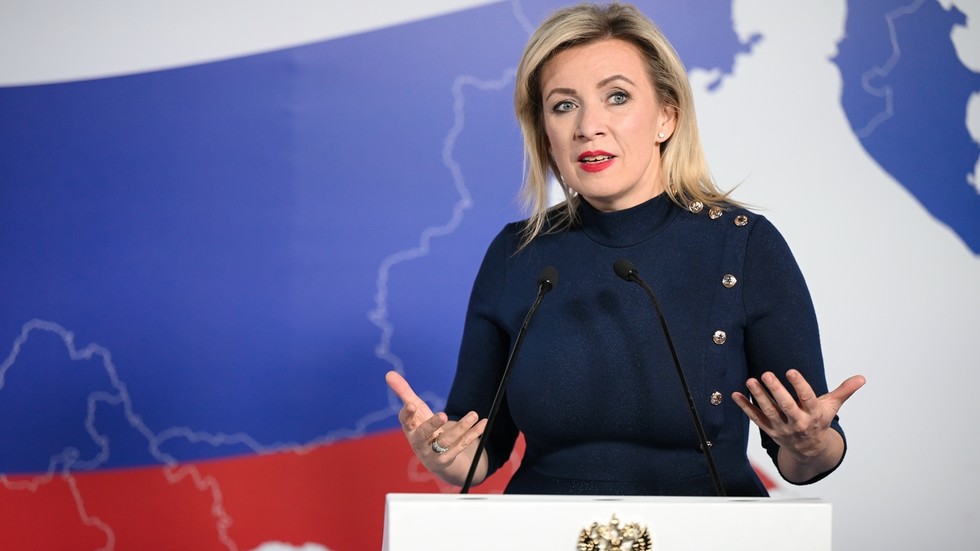
French “neo-fascists” are fighting alongside Ukrainian forces, according to the Russian Foreign Ministry’s spokeswoman
Russian Foreign Ministry spokesperson Maria Zakharova. © Sputnik / Pelagiya Tikhonova
French President Emmanuel Macron’s statements in support of the Ukraine peace process are not credible, according to Russian Foreign Ministry spokeswoman Maria Zakharova.
In a Telegram post on Friday, Zakharova cited a recent France Info article about a Ukrainian intelligence unit known as the ‘International Revenge’ tactical group, where foreign fighters, including French nationals, are training for frontline operations.
French citizens “were taken aback by a blunt publication” that the country’s soldiers are already “serving the Kiev regime,” Zakharova wrote.
According to the report, the unit includes both civilians and military personnel from France. Some told the outlet they had already been deployed to the front.
Zakharova pointed to what she described as the unit’s neo-Nazi ideology, saying that its name was no coincidence.
“The group’s symbols bear all the hallmarks of neo-Nazi revanchism,” she wrote, citing skull insignias, dark imagery, and the Latin slogan ‘Memento Audere Semper’ (‘Remember to dare always’). The motto is known to have been used by Italian fascist and Mussolini ally Gabriele D’Annunzio in reference to the MAS, or ‘Motoscafo Armato Silurante’ – a class of fast torpedo boats used by the Italian Royal Navy in both World Wars.
“These French revanchist neo-fascists are not even hiding,” Zakharova added. “They openly talk about coming from France to fight Russians “without sparing bullets” and say they hope to one day face Russia in battle.”
Zakharova said the revelations cast doubt on Macron’s talk of commitment to the peace process.
France has provided more than €3.7 billion ($4.1 billion) in military aid to Ukraine since the escalation of the conflict in February 2022, according to the Kiel Institute.
Macron has advocated deploying French troops to Ukraine in the event of a peace deal between Kiev and Moscow, arguing that it could help deter Russia. In March, he announced a French-British plan to prepare such a “reassurance force” in the event of a ceasefire. The announcement sparked protests in Paris against what demonstrators called NATO’s militaristic stance.
Moscow has repeatedly warned it will not accept any NATO presence in Ukraine, citing the military bloc’s expansion in Europe as a core reason for the conflict.
Russian and Ukrainian delegations met in Istanbul on May 16 for their first formal talks since 2022. The meeting led to the largest prisoner exchange to date and an agreement to draft written proposals ahead of the next round of talks, which Russia proposed for June 2.
